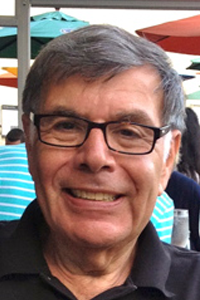Don't see what you're looking for?
Main Site
Berklee.eduCampuses and Schools

Wayne Wild
For media inquiries, please contact Media Relations
- Medical director at Tufts Health Plan
- Publications include Medicine-by-Post: The Changing Voice of Illness in Eighteenth-Century British Consultation Letters and Literature (2006); "Due Preparations: Defoe and Dr. Mead and the Threat of Plague" in Liberating Medicine, 1720-1835 (2009), and Liberating Aesthetics: For the Aspiring Artist and the Inspired Audience (Kendall-Hunt, 2015), which is based on a Berklee course on aesthetics not as philosophy, but from the point of view of poets and other artists, intended for budding artists
- Presented talk entitled the Rhetorical Origins of Modern Medical Ethics in Enlightenment Scotland, on February 6, 2014, at the Max Planck Institute for the History of Science in Berlin
- Published in Scottish Medicine and Literary Culture, 1726-1832 (2014)
- B.A., Columbia College
- M.D., Columbia College of Physicians and Surgeons
- Ph.D., Brandeis University, English and American literature
"I teach College Writing, including a second-level, focused course I developed called Aesthetics: Artistic Choices, which extends College Writing 1 awareness around the intentionality of writers and artists in their work. The class examines what poets in particular have said about their own artistic intentions. We read Walter Pater, Oscar Wilde, T.S. Eliot, William Carlos Williams, Frost, and Wallace Stevens, and talk about modernism and postmodernism as different attitudes towards creativity and achieving a reality that is alternative to conventional reality. I end with the Antonioni film Blow-up, which contains all the elements of aesthetics we discuss throughout the semester. Students say they learn more about their music through this course. They become more alert to their own intentionality and the fact that they are always making choices, whether taking a photo or playing their instrument."
"The supreme moment of creativity is reaching that level in which you are both entirely engaged with what you're doing and yet aware that you're in it, what Aaron Copland calls being both inside and outside a work simultaneously, as creator or audience. It's kind of an exquisite moment. Poets also speak to that, and how to combine spontaneity with form, to be both Dionysian and Apollonian. That is a supreme aesthetic question I ask students to consider, as they learn so much order and form at Berklee yet want to express their own spontaneous impulses."
"I'm a physician, an internist and gastroenterologist. I was an English major at Columbia in the '60s, part of that rebellious group! I practiced medicine from '78 to '93 here in Boston, and then I just wanted to go back and do something that I really loved. So I got a Ph.D. in English literature at Brandeis, focusing on 18th-century English lit/medical history and its relationship to history and language. The students call me Doc Wild for fun."
"I have started a new course at Berklee as of spring 2017 called Interior and Exterior Landscapes that investigates how what we see affects how we feel and how what we feel affects what we see in relation to art. Landscape refers to personal landscapes, painting, film, science fiction, and many other landscapes that create our personal and artistic identity."